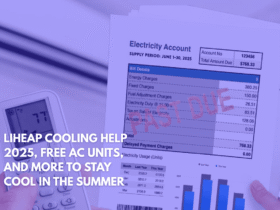If you’re thinking about buying an electric vehicle (EV) in the United States, now might be the time to act. President Donald Trump has proposed removing federal tax credits for electric vehicles if he returns to office. This proposal is part of what he’s calling the “One Big Beautiful Bill,” and it could bring a fast end to current EV incentives.
Right now, EV buyers in the U.S. can save a significant amount of money, thanks to tax credits introduced under the Inflation Reduction Act. But if Trump’s plan becomes law, the $7,500 tax credit for new electric cars and the $4,000 credit for used EVs could disappear very soon.
Understanding the Current EV Tax Credits
Today, under the existing law, eligible buyers can receive a tax credit of up to $7,500 when purchasing a new electric vehicle. This amount is split into two parts.
The first $3,750 is given if the car meets certain rules about where its battery components are made. The second half depends on whether the minerals used in the battery are processed in the U.S. or in partner countries.
For used electric cars, there’s a separate tax credit available that can go up to $4,000. This benefit has its own conditions, but it mainly helps buyers afford older, second-hand electric vehicles.
There are also strict price limits for the vehicles to qualify. A new car must cost less than $55,000, while SUVs, pickup trucks, and vans must be priced below $80,000. On top of that, the buyer’s income is also taken into account.
For individuals, the adjusted gross income must be under $150,000. Heads of household can earn up to $225,000, and married couples filing jointly must stay below $300,000.
The car must be assembled in North America and have a battery with a minimum capacity of 7 kilowatt-hours. These details must all be confirmed at the time of purchase.
How to Claim the EV Tax Credit
There are two main ways to receive the EV tax credit. The first method is to claim the credit later while filing your annual tax return. In this case, buyers must complete IRS Form 8936 to apply the credit when paying their taxes.
The second option is faster and more popular for many. Buyers can transfer the credit to the car dealer at the time of purchase. If the dealership is part of the IRS transfer program, they will apply the tax credit as a discount on the car’s price. This makes the benefit immediate and reduces either the purchase price or the amount financed.
To do this, buyers must provide some important information, including the vehicle identification number (VIN), the date of purchase, and the final sale price. A certificate of credit eligibility, given by the dealer, is required to confirm that the car qualifies under the IRS guidelines.
What Happens If Trump’s Plan Becomes Law?
If Trump’s proposed bill is passed, the change would take effect very quickly. The $7,500 credit for new electric cars would end 180 days after the bill becomes law. The $4,000 credit for used EVs would be even more short-lived, ending in just 90 days.
Even more immediate would be the end of tax benefits for leased electric vehicles that are built outside of North America. There would be no waiting period at all for this part of the law to be enforced. The impact would be instant, cutting support for a big portion of the EV market.
Why This Matters for EV Buyers
The current EV tax credits have been a major reason why more people have been switching to electric cars. These discounts make EVs more affordable and help lower the overall cost. If the credits are removed, buying an electric car could become much more expensive.
This move would mark a big shift in the U.S. government’s policy on green transportation. It could slow down the country’s move towards cleaner vehicles and affect the auto industry in a major way.
For now, the tax credit is still active. So if you’re planning to buy an electric car, it might be wise to make the purchase soon before any changes are made to the law.











Leave a Reply